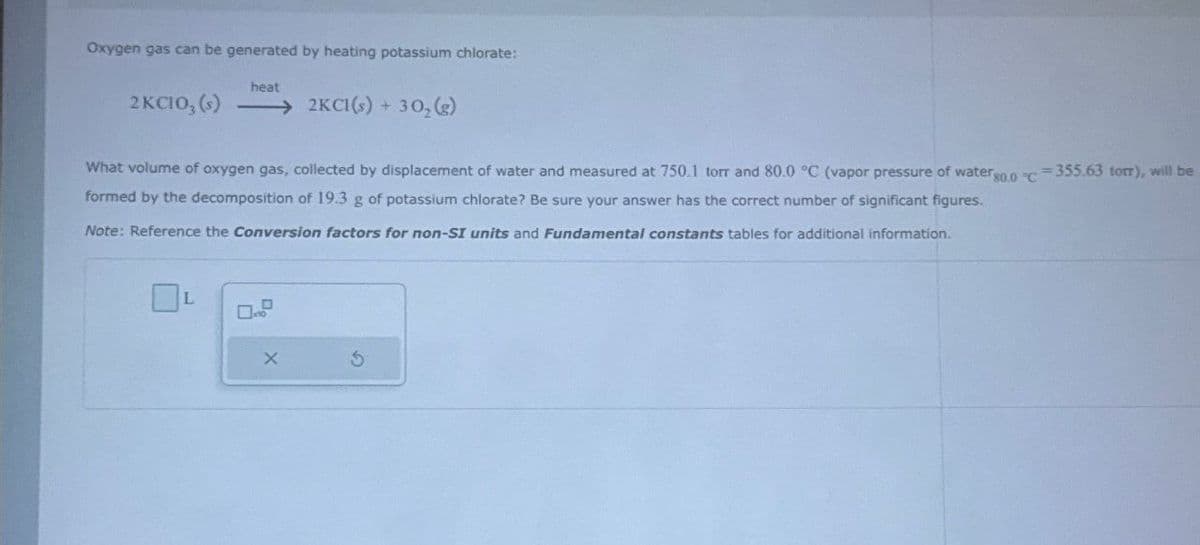Oxygen gas can be generated by heating potassium chlorate: heat 2KCIO, (s) 2KCI(s) + 302(g) What volume of oxygen gas, collected by displacement of water and measured at 750.1 torr and 80.0 °C (vapor pressure of water 80.0 "C-355.63 torr), will be formed by the decomposition of 19.3 g of potassium chlorate? Be sure your answer has the correct number of significant figures. Note: Reference the Conversion factors for non-SI units and Fundamental constants tables for additional information. L O-P X 5
Ideal and Real Gases
Ideal gases obey conditions of the general gas laws under all states of pressure and temperature. Ideal gases are also named perfect gases. The attributes of ideal gases are as follows,
Gas Laws
Gas laws describe the ways in which volume, temperature, pressure, and other conditions correlate when matter is in a gaseous state. The very first observations about the physical properties of gases was made by Robert Boyle in 1662. Later discoveries were made by Charles, Gay-Lussac, Avogadro, and others. Eventually, these observations were combined to produce the ideal gas law.
Gaseous State
It is well known that matter exists in different forms in our surroundings. There are five known states of matter, such as solids, gases, liquids, plasma and Bose-Einstein condensate. The last two are known newly in the recent days. Thus, the detailed forms of matter studied are solids, gases and liquids. The best example of a substance that is present in different states is water. It is solid ice, gaseous vapor or steam and liquid water depending on the temperature and pressure conditions. This is due to the difference in the intermolecular forces and distances. The occurrence of three different phases is due to the difference in the two major forces, the force which tends to tightly hold molecules i.e., forces of attraction and the disruptive forces obtained from the thermal energy of molecules.

Step by step
Solved in 3 steps with 2 images









